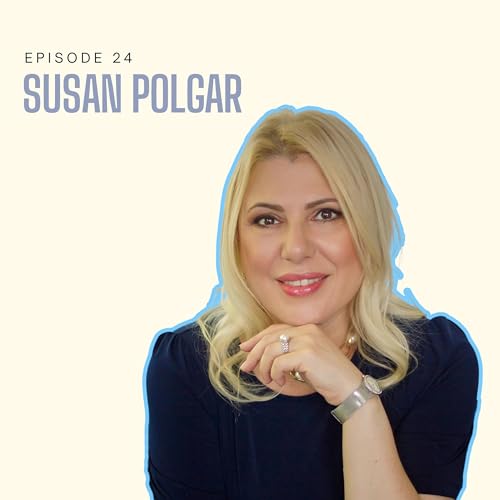
Breaking Barriers in Chess: Susan Polgar on Becoming the First Woman Grandmaster
Failed to add items
Sorry, we are unable to add the item because your shopping cart is already at capacity.
Add to basket failed.
Please try again later
Add to Wish List failed.
Please try again later
Remove from Wish List failed.
Please try again later
Follow podcast failed
Unfollow podcast failed
-
Narrated by:
-
By:
About this listen
Susan Polgar’s father believed geniuses weren’t born, they were made. So when his three-year-old daughter found an old chess set in their Budapest apartment, he saw an opportunity to prove it. Susan quickly learned the game, but soon realized the real challenge: convincing the world that girls could play just as well as boys - which she did by becoming the first woman to earn the Grandmaster title under the same standards as men. In this episode, she shares how she rewrote the gender norms of chess, overcame deeply rooted sexism, and helped redefine what young girls believe they can achieve.
Hear Guest talk about:
- How, at six, she decided to specialize in chess (and not math)
- The sexism she faced as a young girl rising in a male-dominated field
- Why her grandmother's words shaped her sense of perseverance
- What came after winning world championships
- The lessons chess teaches about focus, decision-making, and resilience
Mentioned in this episode:
- Rebel Queen: The Cold War, Misogyny, and the Making of a Grandmaster by Susan Polgar
- The Susan Polgar Foundation - scholarships, training, and outreach for young chess players
- Introduction: Learn Chess in 30 Minutes (first instructional video for beginners)
Support This Show:
- Follow Tell Me What It’s Like in your favorite podcast app
- Leave a rating & review — it helps others find the show
- Share the episode and tag @RaineMediaCo on social media
No reviews yet
In the spirit of reconciliation, Audible acknowledges the Traditional Custodians of country throughout Australia and their connections to land, sea and community. We pay our respect to their elders past and present and extend that respect to all Aboriginal and Torres Strait Islander peoples today.



